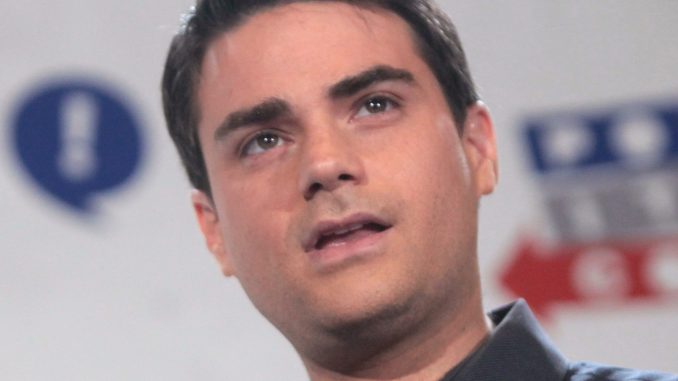
This week, America found a new cause to rally around: Keaton Jones. Keaton is a middle school student who was apparently viciously bullied at school for the crime of having a scar on his head from the removal of a tumor. His mother filmed a video of him crying as he explained that other kids had poured milk over his head and mocked him; through his tears, Jones questioned why kids treat one another this way.
The video was absolutely heartbreaking.
It was particularly painful for me. I skipped two grades. By the time I hit sophomore year of high school, I was half a foot shorter and 40 pounds lighter than the other kids. The other kids had been in classes together for years; I was a newcomer. That meant being physically shoved into trash cans and lockers. On one overnight trip, some of my classmates handcuffed me to a metal-framed bed and then hit me repeatedly on the rear with a belt. I pretended to sleep through it, and rather unconvincingly.
So I know what Keaton went through. Being bullied makes you feel like a bottle about to burst — the frustration eats away at your stomach lining and makes you dread going to school. It makes you miserable; even when you’re happy, you’re constantly waiting for the next shoe to drop.
Still, I don’t think Jones’ mom should have taken that video.
I think that for two reasons. First, all the celebrity Jones has achieved here won’t help him when the cameras turn off. The bullies will still be there, but they’ll be twice as cruel, thanks to their belief that he has made fame and fortune off of them. They’ll seek to justify their bad actions with more bad actions.
Second, Jones himself isn’t going to be helped by this in the long term. No child should have to be bullied, and if someone ever tries to bully my kids, I’ll step in with the full range of possibilities at my disposal. But being bullied can have two possible effects: You learn to stand up and cope, or you learn to identify as a victim. If you can hold your head up high even while you’re being bullied, you’re likely to live a stronger, happier, fuller life. That doesn’t mean you’re going to be able to knock out the bully a la Daniel in “The Karate Kid.” But it does mean you’ll be able to better deal with the vicissitudes life has to offer. Those won’t end with middle school.
We worry — rightly — about bullying in schools. But we should also worry about how victims treat their victimhood and how they can turn that victimhood into strength for the long haul. Our society has sympathy for victims of bullying, as it should. But we should recognize that just as a wounded animal must be prepared to re-enter the wild lest it die in wild conditions, children must be prepared to live in wild conditions. Those conditions represent life for most people at most times. We can and should stick up for victims against bullies. But we should also focus on empowering victims to become the future bulwarks against bullying — for themselves and for their children.
Ben Shapiro, 33, is a graduate of UCLA and Harvard Law School, host of “The Ben Shapiro Show” and editor-in-chief of DailyWire.com. He is The New York Times best-selling author of “Bullies.” He lives with his wife and two children in Los Angeles.



